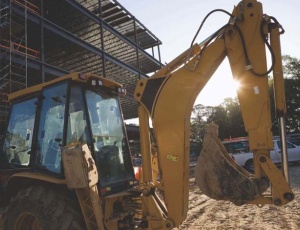As the recession slogs along, attorneys specializing in construction law continue to see problems in the building industry that go with lean times: payment disputes dissolving into stop orders and mechanic�s liens, squabbles over competitive bids and desperate contractors chasing jobs into unfamiliar territory.


It�s all provided no end of work for construction lawyers, who first strive to keep their clients from wading unaware into potential legal quagmires and then fight to pull them out of the muck when they do.

VAN DUZER
�A lot of these issues are still playing themselves out in the market, but we�re seeing more payment disputes and therefore more liens and stop notices,� says Rick Van Duzer, a partner with San Francisco-based Farella Braun & Martell LLP and co-chair of the firm�s construction practice group.
�We�re also seeing, more than liens and stop-notice activity, bid protests. Five years ago when the market was hot, if someone didn�t get a job, he or she just moved on to the next one because there was so much work out there. No one wanted to go through the hassle of fighting for a job. Now, more and more companies are making bid protests and fighting for the work, particularly when the bids are close together.�

MCKEEMAN
Michael McKeeman, a partner with Seyfarth Shaw LLP and co-leader of the firm�s San Francisco commercial litigation practice group, says contractors are finding themselves wrestling for projects with larger firms that five years ago would have turned up their noses at the work.
�In talking with my clients, some have said their revenue is off 50% over 2007, so when they bid a job, the competition is fierce,� McKeeman says. �Not only are the bigger players bidding on smaller jobs, but you have the smaller firms lining up as well.�
Mechanics liens � what McKeeman refers to as the �bread-and-butter staple of a construction lawyer�s diet� � are also on the rise, but he and other attorneys say contractors are increasingly finding that their liens are little more than a meal of empty calories.
�What we�re seeing more than ever are owners walking away from projects and banks then foreclosing on the projects,� he says. �Usually, the project is so underwater that the mechanic�s lien is essentially worthless. That happens a lot with smaller projects where the developers and owner are the same. They work it out with the bank where they just turn off the project, the bank forecloses and the lien gets wiped out. The contractor doesn�t have anyone to go after.�

LOZOWICKI
Sheppard Mullin Richter & Hampton partner Edward Lozowicki says that to better protect themselves, contractors should consider the additional expense of a bonded stop notice, which requires a lender to withhold a portion of its loan to a borrower equal to 125% of the lien claim.
�It�s fair to say that the increased number of mechanic�s lien claims out there are a direct consequence of the recession, and the fact that both owners and developers are hanging on to their money for as long as they can is putting contractors between a rock and a hard place,� says Lozowicki, who works in the firm�s San Francisco office.
�Unfortunately, mechanic�s liens can be essentially valueless. Lenders have priority over lien claimants. In California, smart lien holders will have a bonded stop notice. It�s a separate remedy in addition to the liens. In my view, it�s a more powerful remedy because, if there�s still money in the lien account, the contractor can recover even though the lien is valueless. It costs a little more because you have to buy the bond, but the risk of bankruptcy makes it worth the expense.�

Post a comment to this article
Report Abusive Comment